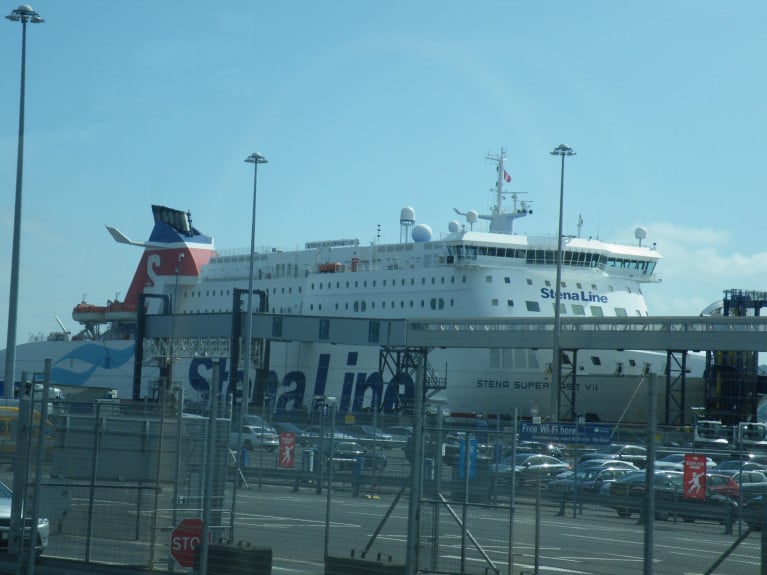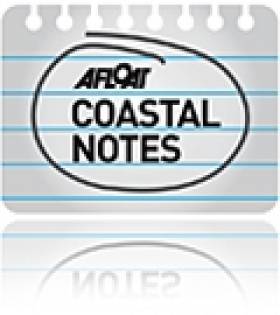Displaying items by tag: Cuts
Ferry operator Stena is reducing its Belfast Harbour services as a result of the coronavirus pandemic.
The firm, which normally operates seven ships on 138 sailings a week from Belfast, has temporarily berthed one ship (Afloat tracked to ro-ro freighter Stena Forecaster) and cut sailings to 108 a week.
Earlier this week, the firm said it would furlough staff and make redundancies across its UK and Ireland operations.
Stena sails from Belfast to Heysham, Liverpool and Cairnryan.
It is understood freight volumes have fallen since the crisis began but that non-freight traffic has collapsed.
More on this BBC News story here including what is happening to the ferry sector serving the Republic when yesterday Afloat reported the Irish government approved an “emergency provision” of a maximum of up to €15m (£13.2m).
This is the cost of maintaining five passenger ferry services in response to Covid-19.
Marine Escapes Cuts in Latest Budget
#BUDGET - Coastguard and lifeboat services, mountain rescue and the Commissioners of Irish Lights will not face any further funding cuts in the latest Budget, according to the Minister for Transport.
The Irish Times reports that, following the reduction of his department's budget, Minister Leo Varakdar stated that substantial cuts have already occurred in the maritime safety sector.
Moreover, he announced an increase in the maritime budget from €70.5 million to €80.3 million, due to provisions for the new Irish Coast Guard helicopter contract.
Earlier this week, Minister for Agriculture, Food and the Marine, Simon Coveney, underlined the importance of the marine sector to Ireland's coastal communities.
As previously reported on Afloat.ie, Minister Coveney announced a round of expenditure estimates on Monday which include increased funding for investment in processing, aquaculture and fishery harbours.
Heritage Council Face Severe Cuts
The Heritage Council of Ireland is to face a 47% cut in funding following the budget's announcement on Tuesday. The large-scale reduction in funding the statutory body will decimate the heritage sector and threatens the closure of many small enterprises that are dependent on it. The cut is on top of a 30% fall in funds introduced during this year.
The council is charged with identifying, protecting, preserving and enhancing Ireland's national heritage which also includes seascapes, wrecks and the inland waterways.
"We are extremely concerned about the disproportionate nature of the cuts to the heritage sector. While the heritage sector recognises that it must share the burden of the cuts required to tackle the country's economic crisis, the cuts announced last Tuesday are completely disproportionate in comparison to other Departmental cuts." said Michael Starrett, chief executive of the Heritage Council.
"As a result, the future of heritage initiatives nationwide which have created hundreds of jobs, empowered local communities and enhanced the value of heritage as a tourism resource, are severely threatened", he added.
According to the Heritage Council, such cuts will have a detrimental impact on the national heritage and the quality of tourism offered. In 2009, over three million overseas visitors engaged in cultural/historical and spent an estimated €1.9 billion. Funding will now no longer be available to protect and manage the nations heritage.
For information on the Heritage Council's marine publications section click here and on inland waterways logon to www.heritagecouncil.ie/inland_waterways/


























































